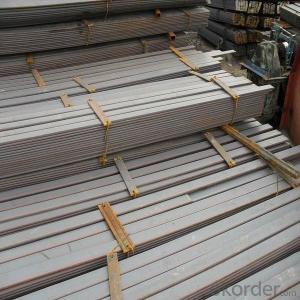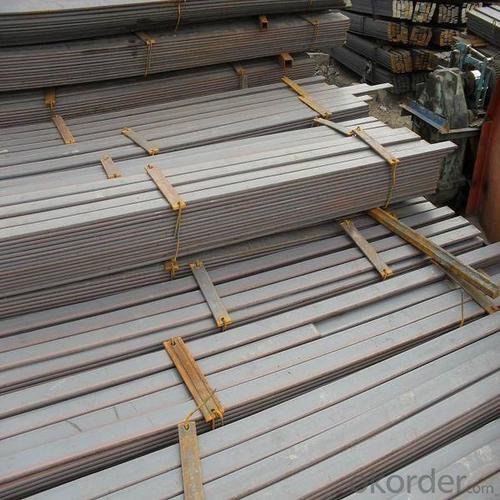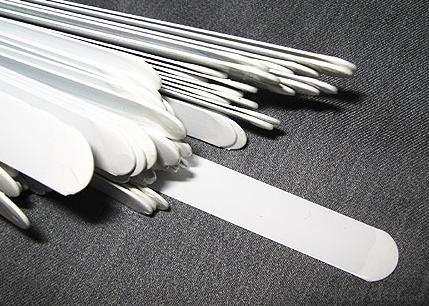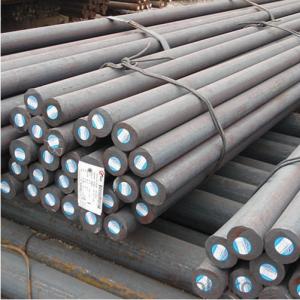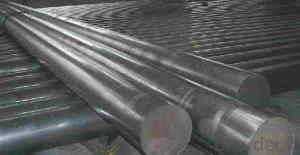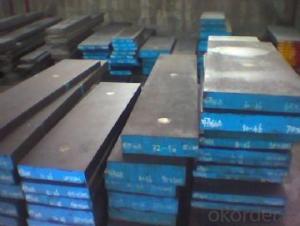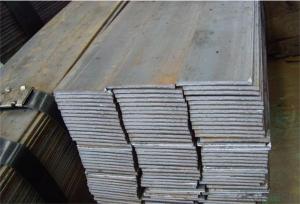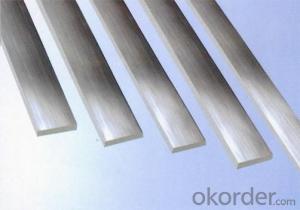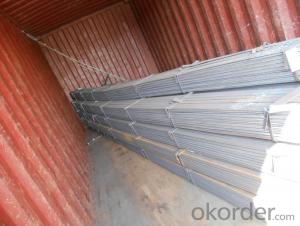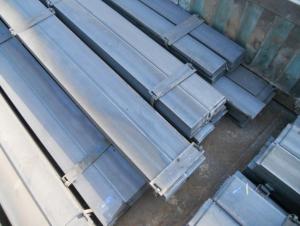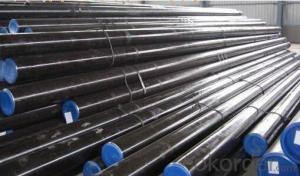Steel Spring flat bar/ JIS standartd/ Prime quality
- Loading Port:
- Shanghai
- Payment Terms:
- TT OR LC
- Min Order Qty:
- 30 m.t.
- Supply Capability:
- 800 m.t./month
OKorder Service Pledge
OKorder Financial Service
You Might Also Like
Specifications
Spring steel flat bar
Garde: 60Si2Mn, 60Si2MnA, 55CrMnA,50CrVA
Standard GB,JIS,ASTM,DIN,AISI,BS
LF & VD forge;ISO&TUV appr
Materials
Q195,Q215,Q235B,Q345B,
S235JR/S235/S355JR/S355
SS440/SM400A/SM400B
Product Category
Metallurgy,Mineral &Energy
Technique
HOT ROLLED
Packing
1.Big OD:in bulk
2.Small OD:packed by steel strips
3.woven cloth with 7 slats
4.according to the requirements of customers
Usage
Mechanical&manufacture,Steel strcuture,
Shipbuilding,Bridging,Automobile chassis
Main market
Middle East,Africa, Asia and some Uropean country and America ,
Australia
Country of origin
China
Productivity
15000 Metric Tons pet Month
Remark
Payment terms :T/T ,L/C
Terms of trade :FOB ,CFR,CIF ,DDP,EXW
Minimum order : 10 tons
Lead time :on or before 3-15 working days .
- Q: How are nickel-based alloys used in the aerospace industry?
- Nickel-based alloys are extensively used in the aerospace industry due to their superior strength, high temperature resistance, and excellent corrosion resistance properties. These alloys are commonly employed in the construction of aircraft engines, turbine blades, and exhaust systems. They help improve engine efficiency, enhance fuel economy, and ensure safe and reliable operations in extreme conditions, making them crucial for the advancement of aerospace technology.
- Q: How does special steel perform under high-temperature conditions?
- Special steel is designed to perform exceptionally well under high-temperature conditions. It demonstrates excellent strength, toughness, and resistance to oxidation and corrosion at elevated temperatures. Additionally, special steel maintains its mechanical properties and dimensional stability even when exposed to extreme heat. Its unique composition and manufacturing techniques allow it to withstand high temperatures without significant degradation, making it ideal for applications in industries such as aerospace, power generation, and automotive.
- Q: Can special steel be used in the appliance manufacturing industry?
- Yes, special steel can be used in the appliance manufacturing industry. Special steel, such as stainless steel or heat-resistant steel, offers superior strength, durability, and corrosion resistance, making it suitable for various appliance components like oven interiors, refrigerator doors, or dishwasher racks. Its properties enhance the overall performance and longevity of appliances, ensuring high-quality products for consumers.
- Q: How does special steel contribute to the automotive racing industry?
- Special steel contributes to the automotive racing industry by providing high-strength and lightweight materials that enhance the performance and safety of race cars. These steel alloys are used in various components, such as engine parts, chassis, and suspension systems, allowing for improved speed, maneuverability, and durability. Additionally, special steel's exceptional heat resistance and ability to withstand extreme conditions make it vital for engines that generate immense power and operate at high temperatures. Overall, special steel plays a crucial role in pushing the boundaries of automotive racing technology and enabling teams to achieve optimal performance on the track.
- Q: What are the requirements for special steel used in food processing equipment?
- Ensuring the safety and hygiene of food during processing relies heavily on the crucial requirements for special steel used in food processing equipment. The following are key considerations: 1. Corrosion resistance: The steel utilized in food processing equipment must possess exceptional resistance against corrosion. It should withstand exposure to various food products, cleaning agents, and environmental conditions without degradation or food contamination. 2. Hygienic properties: To facilitate easy cleaning and prevent the growth of harmful microorganisms, the steel should have a smooth surface finish, devoid of cracks, pits, or crevices where bacteria or food particles can accumulate. 3. Non-reactivity: The steel employed in food processing equipment must not react with the food or modify its taste, color, or odor. It should be chemically inert, releasing no substances that could compromise the food's quality or cause contamination. 4. High temperature resistance: Food processing often involves high-temperature operations like cooking, sterilization, or pasteurization. Therefore, the special steel used in such equipment must endure these extreme temperatures without compromising its structural integrity or releasing harmful substances. 5. Mechanical strength: The steel must possess adequate mechanical strength to endure the operational stresses of the processing equipment, such as pressure, vibration, or impact. This ensures durability and prevents any failures or breakages during operation. 6. Compliance with regulations: The special steel utilized in food processing equipment must meet specific regulatory standards and certifications pertaining to food safety and hygiene, such as those set by the FDA (Food and Drug Administration) or NSF (National Sanitation Foundation). Complying with these regulations guarantees the equipment's suitability for use in the food industry. In summary, the requirements for special steel used in food processing equipment focus on ensuring the equipment's durability, cleanliness, and safety while upholding the quality and integrity of the processed food.
- Q: What are the properties of spring steel?
- Spring steel is a type of high carbon steel that possesses excellent elasticity and resilience, making it ideal for applications requiring strong and flexible materials. It exhibits superior strength and hardness, along with good fatigue resistance, which allows it to withstand repeated bending or twisting without deforming or breaking. Moreover, spring steel is known for its high yield strength, allowing it to store and release energy efficiently, making it suitable for various spring applications such as suspension systems, mechanical springs, and tools.
- Q: Can special steel be used in the food packaging industry?
- Yes, special steel can be used in the food packaging industry. Special steels, such as stainless steel, are often preferred due to their corrosion resistance, durability, and hygienic properties. They can be used to manufacture containers, equipment, and machinery for packaging, ensuring safe and efficient food handling and storage.
- Q: How does special steel perform in corrosive environments?
- Special steel is specifically designed to perform exceptionally well in corrosive environments. It is resistant to corrosion caused by various factors such as moisture, chemicals, and high temperatures. This type of steel typically contains higher levels of alloying elements such as chromium, nickel, and molybdenum, which enhance its corrosion resistance properties. Additionally, special steel undergoes specific heat treatments and surface finishes to further improve its resistance to corrosion. Overall, special steel exhibits excellent performance and longevity in corrosive environments, making it a preferred choice in industries such as oil and gas, chemical processing, marine, and construction.
- Q: What are the properties of die steel?
- Die steel is a type of tool steel known for its high hardness, wear resistance, and toughness. It possesses excellent dimensional stability, allowing it to maintain its shape and size even under extreme temperature variations. Die steel also has good machinability and can be easily shaped and formed into intricate designs. Additionally, it offers high thermal conductivity, enabling efficient heat transfer during the die-casting process.
- Q: What are the requirements for special steel used in marine applications?
- Special steel used in marine applications must meet several specific requirements to ensure its durability and performance in harsh marine environments. These requirements include: 1. Corrosion resistance: Marine environments expose steel to saltwater, which can cause corrosion. Therefore, special steel used in marine applications must have high resistance to corrosion to prevent degradation and maintain its structural integrity over time. 2. Strength and toughness: Steel used in marine applications must have sufficient strength and toughness to withstand the dynamic forces and impacts experienced at sea. It should be able to withstand heavy loads, extreme temperatures, and impact from waves or collisions. 3. Weldability: Special steel for marine applications should have good weldability to facilitate the construction and repair of marine structures. Weldability ensures that the steel can be easily joined without compromising its structural integrity. 4. Fatigue resistance: Marine structures and vessels are subjected to cyclic loading, which can lead to fatigue failure if the steel is not designed to resist it. Special steel used in marine applications should have excellent fatigue resistance to withstand the constant cyclic loading associated with wave motions, currents, and operational conditions. 5. Low-temperature toughness: Marine applications often involve operations in cold climates or icy waters. Special steel used in marine applications should maintain its toughness and ductility even at low temperatures to prevent brittle fracture and ensure safety. 6. Fire resistance: Fire safety is crucial in marine applications. Therefore, special steel used in marine structures should have high fire resistance to prevent structural collapse and minimize the spread of fire. 7. Easy maintenance: Marine structures are subject to constant exposure to harsh environmental conditions. Therefore, special steel used in marine applications should be easy to maintain and repair, ensuring long-term performance and reducing downtime. To meet these requirements, special steel for marine applications is often alloyed with specific elements such as chromium, nickel, and molybdenum to enhance corrosion resistance, strength, and toughness. Additionally, advanced manufacturing processes and quality control measures are employed to ensure the highest standards of quality and performance in marine applications.
Send your message to us
Steel Spring flat bar/ JIS standartd/ Prime quality
- Loading Port:
- Shanghai
- Payment Terms:
- TT OR LC
- Min Order Qty:
- 30 m.t.
- Supply Capability:
- 800 m.t./month
OKorder Service Pledge
OKorder Financial Service
Similar products
Hot products
Hot Searches
Related keywords
